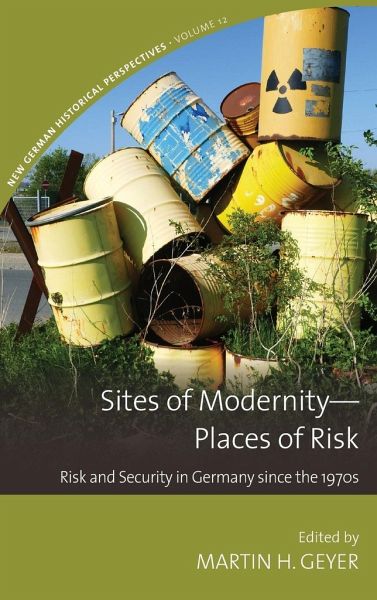
Sites of Modernity-Places of Risk
Risk and Security in Germany since the 1970s
Herausgeber: Geyer, Martin H.

PAYBACK Punkte
66 °P sammeln!
"Places of risk" and "sites of modernity" refer not merely to physical locations, but also objects and institutions that stand at the center of contemporary debates on security and risk. These are social and political domains where energy and infrastructure are produced, where domestic security is pursued and maintained, and where citizens encounter the state in its punitive or monitory roles. Taking a wide view of the period from the 1970s to today, this volume brings together innovative, interdisciplinary case studies of sites of modernity that promise to provide security and safety, yet at ...
"Places of risk" and "sites of modernity" refer not merely to physical locations, but also objects and institutions that stand at the center of contemporary debates on security and risk. These are social and political domains where energy and infrastructure are produced, where domestic security is pursued and maintained, and where citizens encounter the state in its punitive or monitory roles. Taking a wide view of the period from the 1970s to today, this volume brings together innovative, interdisciplinary case studies of sites of modernity that promise to provide security and safety, yet at the same time are deemed responsible for creating new risks. With a particular contemporary interest in the technocratic changes of security and risk control the contributors to Sites of Modernity - Places of Risk position the 1970s as a turning point in the path from industrial to post-industrial modernity.













